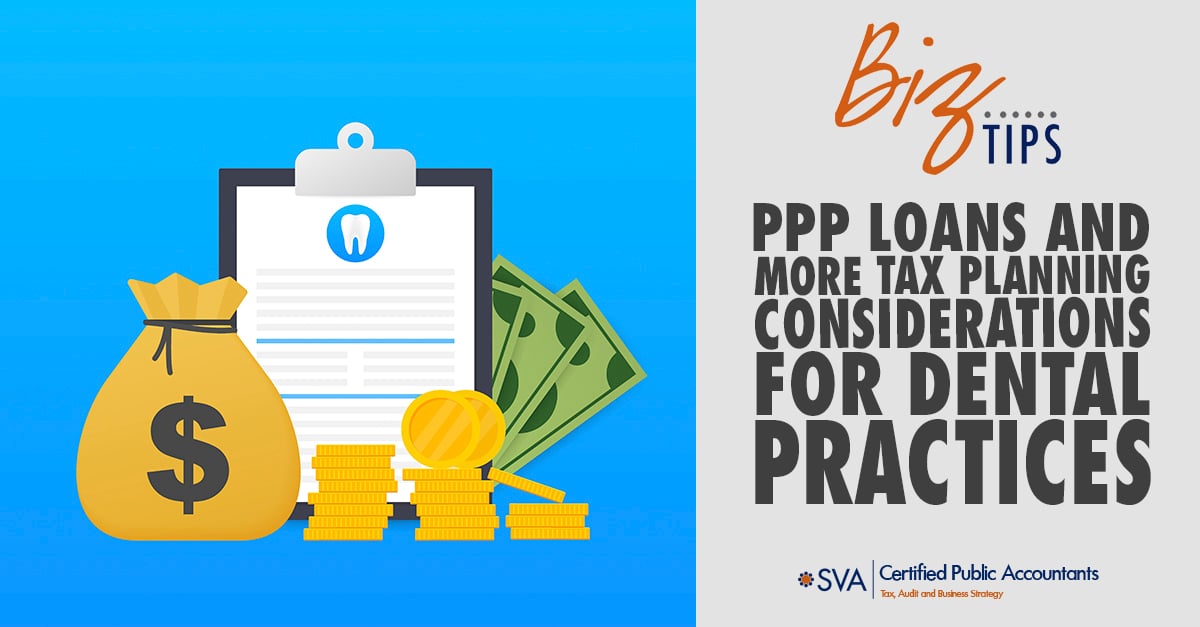For many, the perception is that 2020 will be a down year with reduced income and related tax liabilities.
However, the infusion of cash from the Paycheck Protection Program (PPP) loan, the HHS stimulus package, and other supplemental payment programs has helped to reduce the financial impact of the pandemic.
PPP Loans
Current guidance from the IRS states that while forgiveness of the PPP loan is not taxable income, the related expenses paid with the proceeds are non-deductible for income tax purposes.
So in order to estimate net income and projected taxable income, practices may need to add the amount of the PPP loan forgiveness to their financial statement income. If not planned for, this potential add-back may increase the expected tax liability at filing time.
There is still much clarification needed on this subject and a lot will depend on the actual timing and forgiveness of the loan. We are all waiting for guidance from Congress, the Treasury, and the IRS on whether the PPP loan forgiveness will affect 2020 or 2021 taxable income.
Key Points to Remember:
- Many practices put a hold on significant equipment purchases, remodeling projects, building additions, etc. As such, some practices won’t have the opportunity to accelerate the related depreciation expense on these items. Now is the time to reconsider these items if applicable to you.
- When was the last time you considered if your company-sponsored retirement plan is the right plan for you right now? A more robust 401(k)/profit-sharing plan could provide a larger tax deduction while increasing the amount stashed away for retirement. It could also provide a nice benefit to your staff at a time when retention is a challenge.
2020 has been a year of many ongoing challenges. But with some proactive planning now, you can help to avoid unwanted surprises at tax-filing time. Reach out to your CPA to start the conversation today.

© 2020 SVA Certified Public Accountants

